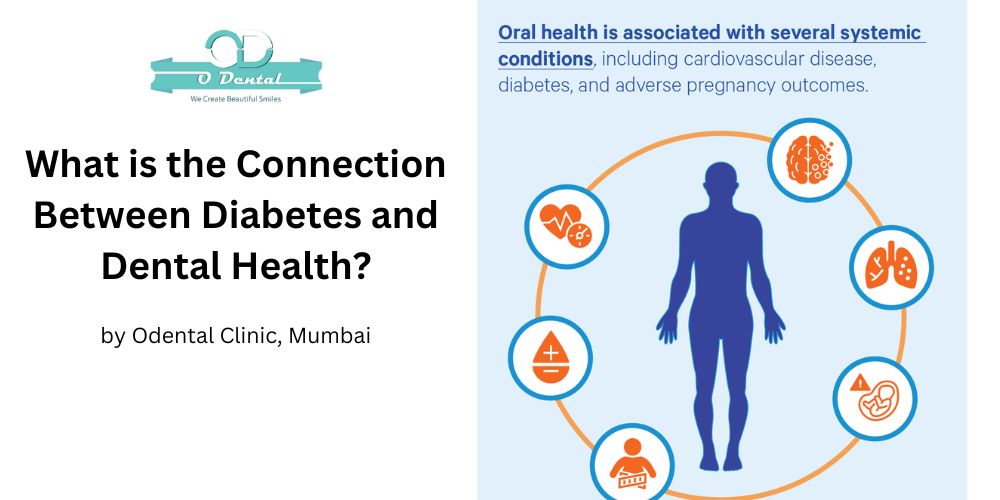Diabetes is among a variety of health issues that can render it harder to maintain appropriate dental hygiene. Gum diseases, tooth loss, and yeast infections inside the mouth have been linked to either Type 1 as well as Type 2 diabetes. Individuals with diabetes might advantage from being proactive about their dental health by closely monitoring their blood glucose levels and practicing good oral cleaning. Additional checkups are occasionally recommended for these individuals to guarantee that any emerging oral health problems are closely monitored.
Diabetes’ Impact upon Oral Health
Diabetes reduces the body’s capacity to fight infections by lowering the immune response, which is among the main impacts of the disease. As a consequence, diabetic people may have a more difficult time battling fungus and bacterium infections inside their mouths.
Thrush is indeed a frequent illness that diabetic people, as well as those with other medical problems, face.
Furthermore, diabetics generate less saliva than people with adequate insulin management levels, which might hasten tooth decay owing to dryness mouth produced by the lack of disease-fighting salivary within the mouth.
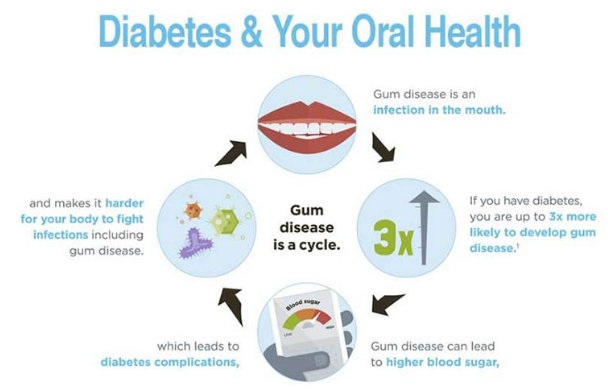
Dental Hygiene and Diabetes
Controlling your blood glucose level is critical regardless you possess type 1 as well as type 2 diabetics. The elevated your blood glucose levels, the more likely you are to develop:
Tooth rotting
- Tooth rotting is a common problem (cavities). Many different bacteria can be found in one’s mouth. Plaque builds on your tooth when carbohydrates and sugars within meals as well as beverages mix with microorganisms in your mouth. Plaque acids chip away at the tops of one’s tooth (enamel and dentin). Pores including gum disease might result as a result of this. The larger your blood glucose, the more carbohydrates, and starches are available to you – and the most acid is eroding your tooth. Learn everything about tooth cavities with us.
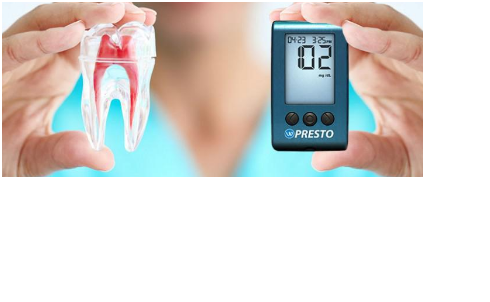
Gum diseases
- Gum diseases in their early stages (gingivitis). Your capacity to combat microorganisms is weakened by diabetes. Whenever you don’t clean as well as polish regularly, plaque will harden beneath your gumline eventually turn becomes tartar (dental calculus). The older plaques and tartar linger upon your tooth, the more bacteria aggravate the gingiva, cleaning area of your gums that runs surrounding the bottom of one’s teeth. Gums get swollen as well as bleeding easily over time. One medical word for this illness is gingivitis.
Gum disease that has progressed
- Gum disease that has progressed (periodontitis). Gingivitis could progress to periodontitis, a much more dangerous illness that damages the delicate tissue as well as bone that supports your tooth if left unchecked. Periodontitis leads your gums as well as jawbone to move away from your tooth, loosening and perhaps causing one’s teeth to drop out. Diabetes decreases the capacity to fight infection and hinders the healing process, making periodontitis particularly severe in diabetics. Periodontitis, for example, might lead your bloodstream sugar to rise, making it extra difficult to manage your diabetes. Periodontitis can be prevented and treated with frequent dental cleanings, which can assist with blood glucose control.
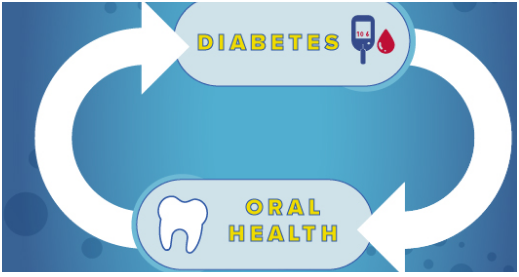
Thrush.
- Thrush, another fungal illness produced by the fungus Candida albicans, might be more common in individuals with diabetes. Thrush is characterized by unpleasant white and red patches within the mouth. Thrush could be avoided by maintaining adequate dental hygiene.
- The mouth is parched (xerostomia). A dried mouth is a symptom of diabetes in which some people do not produce enough saliva. You may be in danger of dental decay, gum diseases, and thrush if you don’t have enough saliva to maintain your mouth wet and bathe one’s teeth.
Dental hygiene is essential.
Take diabetes plus dental care carefully to assist prevent harm to your tooth and gums:
- Decide to take control of your diabetes. Maintain a close eye on one’s blood sugar levels and follow your doctor’s advice for staying within your goal range. Gingivitis as well as other dental issues are less certain to occur if you keep your blood glucose under control.
- At least 2 times a day, clean your tooth. Brush your teeth throughout the morning, during the night, and then after meals plus snacks, if possible. Use fluoride-containing toothpaste as well as soft-bristled brushing. Scrubbing too hard or too vigorously can hurt your gums.
- Consider utilizing an electronic toothbrush, particularly if you suffer from arthritis or even other conditions that make brushing difficult. Replace your toothbrush every 3 months at the very minimum.
- At minimum once per day, floss one’s teeth. Flossing removes plaque from between the teeth and behind the gumline. Utilize waxed dentistry floss whether you have problems getting it between your tooth. Utilize a floss clip if manipulating the floss is difficult.
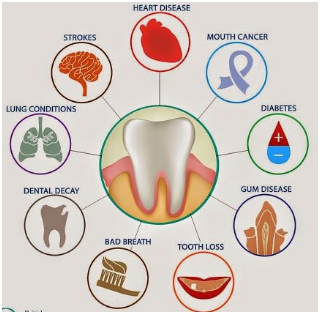
- Make dentist appointments regularly. Professional cleaners, X-rays, and examinations are recommended at a minimum a year.
- Ascertain that your dentists are aware of your diabetes. Inform your dentists knowing you have diabetes every time you see him or her. Ensure your dentists has the contact details for your diabetes-management doctor.
- Look for indicators of gum diseases early on. Several indicators of gum diseases, like redness, inflammation, or leaking gums, should be reported to your dentists. Additional signs and indications, including drying mouth, loose tooth, or oral pain, should also be mentioned.
- Please don’t vape. Smoking raises the chance of major diabetes consequences, such as gum diseases and, eventually, tooth loss. Whenever you smoke, talk to your doctors about your alternatives for quitting.
Diabetes management requires a lifetime commitment, which includes adequate tooth care. You’ll be recognized for your achievements with a lifespan of healthy teeth and gums. Everyone must learn How to preserve Your Teeth Clean.
Dental Hygiene Action Plan for Diabetics
Self-care combined with expert treatment from your dentist would help you maintain a healthy smile while also potentially reducing the course of diabetes. Here seem to be five dental health-related activities you could do to improve your overall health:
Conclusion
Thus maintain a healthy blood glucose level. Taking your diabetes meds as prescribed, eating a healthy diet, plus exercising regularly can all help. Blood glucose control would also aid your system in fighting any bacterial other fungal illnesses within your mouth, as well as alleviate diabetes-related dry mouth. Smoking should be avoided. And If you have any form of denture, make sure to clean it every day.
Brush one’s teeth double the morning with a gentle brush and floss among your teeth every day. Make it a habit to visit your dentists on a routine basis.

